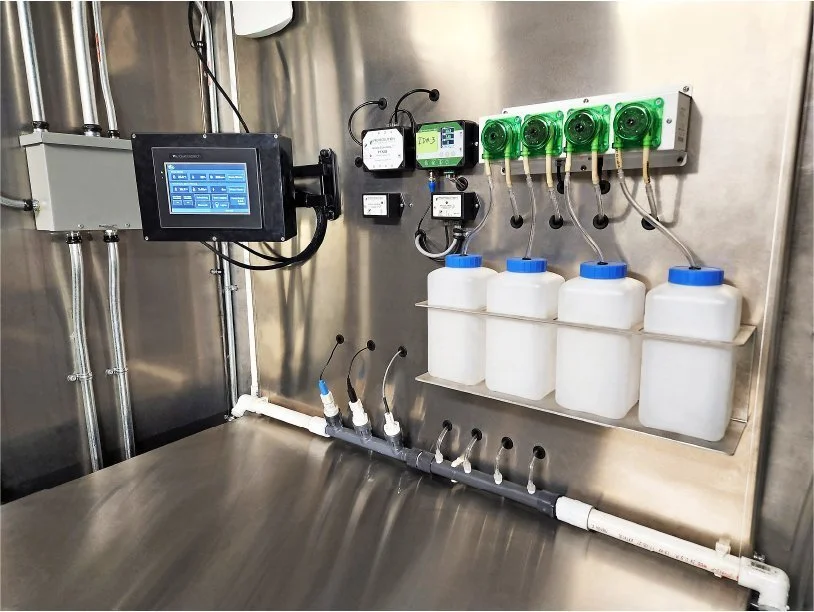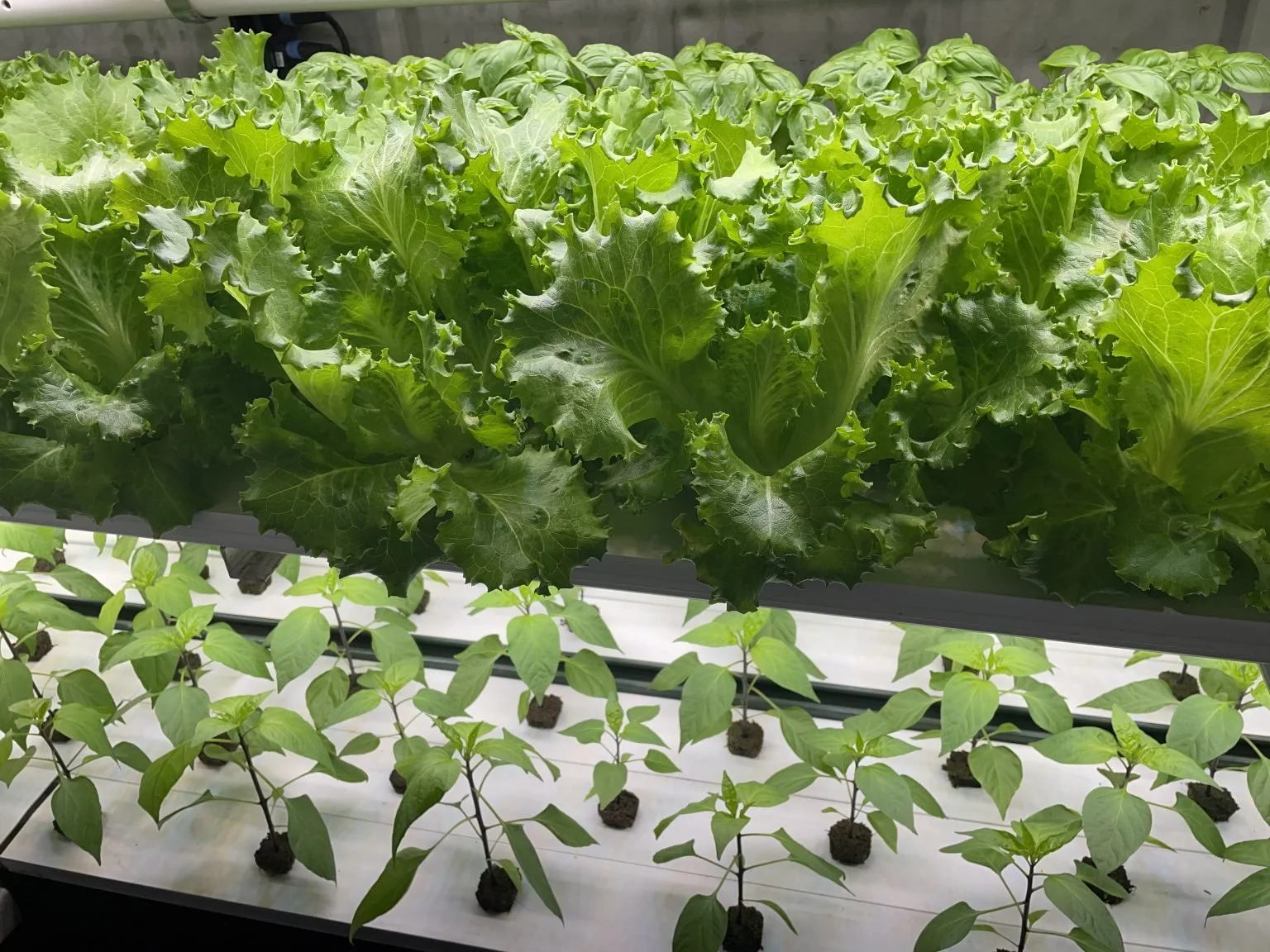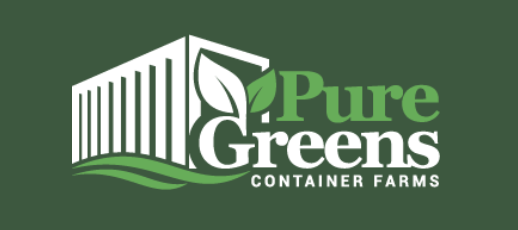How A Container Farm Will Benefit Your School Farming Program
School gardens teach students how to grow fresh, nutritious produce and help them develop healthy eating habits. Some school farming programs are forgoing traditional gardens for enclosed hydroponic shipping container farms (HSCFs).
Container farms have several key benefits for school farming programs over their outdoor counterparts. Here, we explain these benefits and why many progressive curriculums are looking to HSCFs for their school farming needs.
Schools have looked to gardening as a way for students to access fresh, nutritious produce and develop healthy eating habits. Gardens also add to school curriculum for subjects like chemistry, agriculture and business.
Some institutions find value in a simple garden — planting herbs in pots or building a raised bed with irrigation lines. This can be a cheap way to get students excited about gardening and involved in growing produce.
Still, schools have realized that more traditional ways of farming might not add enough value. Your school might want to use the fresh produce in school lunches or sell it for extra revenue. But destructive weather can negate weeks of hard work, demoralizing your students and volunteers.
If your school wants to do more and have precise control over the growing process, hydroponic shipping container farms provide what traditional farming methods don’t. This includes a climate-controlled environment for year-round growth and a growing space clear of weeds and pests. There’s also a variety of opportunities for students to develop critical science, technology, engineering and math (STEM) skills.
Complete climate control
From plant-wilting heatwaves to scavenging animals, the natural world can get in the way of developing your school farming program. Container farming is a solution to these challenges.
For one, it gives you the freedom to grow crops in places where it was impossible before. In Unalaska, Alaska, residents now grow and eat fresh lettuce, kale, cilantro, basil and arugula during harsh, frozen winters. All thanks to a shipping container farm.
The harvesting season for traditional farming is limited by weather and seasonal change. But containerized farms give you control over temperature, humidity and lighting. You can adjust the climate to help your crops stay warm during cold fronts and stay cool during heatwaves. This helps your school grow crops when an outdoor farm would struggle to produce consistent yields.
No matter what you use your farm for, container farms provide more reliability with expected yields. You’ll have peace of mind that your crops won’t freeze or wilt under severe weather conditions. That’s a benefit you’ll experience firsthand when you continue to harvest nutritious produce throughout the year.
No more weeds, pests or uninvited guests
While outdoor gardens give students time to recharge outside of the classroom, some elements might be frustrating or even harmful.
Pollinating insects might help your outdoor crops grow fruits and vegetables. But bees, wasps, spiders and other insects can scare or disgust students. They might also pose a risk to kids who are allergic to these stings or bites.
But container farms are indoors, so pollinators aren’t necessary. Pollinating your plants by hand will still produce high-quality fruits and vegetables. Easing your students’ and their parents’ concerns by growing indoors lowers risks and helps kids focus on learning.
That also means you’re unlikely to see pests, like beetles, that might eat your produce and kill your crops with shipping container farms. While pesticides aren’t often used in school gardens, dealing with bugs and curious herbivores is still a challenge.
There are natural pest control remedies available. But these may require smelly fish fertilizer to deter uninvited visitors to your farm. This isn’t necessary with container farming.
Container farms offer a secure, pest-free growing environment for your school farming program. Gone are the days of setting up fences and gates to protect your growing site. You’ll never worry about wildlife rampaging through your garden and snacking on your vegetables. When your students don’t have to worry about the destruction of their hard work, they’ll stay motivated while sowing, growing and harvesting.
School farming programs supplement students’ studies
To outsiders unaccustomed to the agriculture industry, the number of jobs students can perform may seem limited. After all, how much work needs to be done on a farm? As any farmer will tell you, it’s more than you’d think.
Thinking outside the box, it’s easy to come up with a wide variety of jobs that students can do. Simple jobs can be done by younger students, while more complex tasks might provide an exciting challenge for older students.
School farming programs give students a personal stake in the work that goes into producing healthy fruits and vegetables. It gives them an understanding of nutrition and how what they eat changes their energy levels and mood.
Many students will experience agricultural work for the first time in a container farm while participating in your school farming program. Nurturing a plant all the way from seed to harvest is a powerful moment for students. The future agriculturalists of America may learn the basics of the trade at your school. But first they’ll need activities to stimulate their minds and bodies.
Shipping container farm activities will develop your students’ minds and expand their understanding of the food system, business operations, and STEM disciplines. Hydroponic container farms provide areas where students can receive hands-on learning in key vocational skills, especially science, engineering and technological literacy. These skills will invigorate your student’s imaginations and empower them to develop their interests alongside their classmates in a collaborative social setting.
No matter what you envision for your school farming program, Pure Greens is ready to assist you. From a single farm to a 24-unit stacked container farm enterprise, our fabrication experts will build what you need.
Contact us to learn more.





